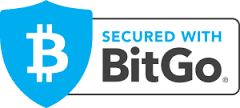BitGo Launches Verisign-Like Certificate To Prove Solvency For Bitcoin Companies
As hard as it is to imagine now, 20 years ago, when Internet communication was new, it wasn’t always possible to know if you could trust the person on the other end of your interaction.
An innovation in secure Internet communication, SSL, enabled consumers to be able to trust that, say, their credit card numbers wouldn’t be stolen online. And companies like Verisign offered seals of approvals that let a consumer know when they were dealing with a company they could trust.
In the same way, Bitcoin security company BitGo announces Tuesday a new stamp of approval in Bitcoin transactions that aims to help consumers put more trust in transactions in the digital currency.
This “proof of reserve” product, called Verified by BitGo, intends to show users of Bitcoin companies that the firm they are dealing with has adequate funds, though at first, this will not be done in real time (more on that in a second).
“It’s a way we can help our customers” — meaning Bitcoin businesses — “show their end users that they’re operating in a good state, and make sure everyone can trust everybody. It’s kind of like an online audit that everyone has access to in a safe way all the time,” says Mike Belshe, chief executive of BitGo, adding that demand for the product came from Bitcoin businesses, not consumers.
One of the problems so far in the history of Bitcoin has been some operators not having the funds they claimed to have. The most notorious incident involved Mt. Gox, an exchange in Japan that, due to poor management, actually lost 850,000 Bitcoin, then worth $450 million.
BitGo, which counts former Verisign CEO, chairman and president Stratton Sclavos on its board, will calculate both a company’s liabilities and its assets. As long as its assets are in excess of it liabilities, participating companies will be able to display a Verified by BitGo certificate on a dedicated page. The service is available to businesses that secure their assets at BitGo.

“This is about a feature that Bitcoin provides that you can’t do in U.S. dollars,” says Belshe. “A company can’t say, ‘We have the money in the bank we say we have, so we’re worthy of your trust to do business with us.’” He foresees a future in which financial services companies are able to use technology to show, in real time, that they’re solvent. (Today, most Bitcoin companies hold 100% of funds instead of keeping a fraction as banks typically do.)
The first customer will be ChangeTip, a “micropayments” company that allows people to easily send small amounts of Bitcoin to each other. For instance, some ChangeTip users use it to send “a beer” ($3.50), “a doughnut” ($0.35), or — the most common choice on the service — “a coffee” ($1.50). Others even send people fractions of a penny as a sign of a “super like” for an especially comment on Facebook or a “super upvote” for the same on Reddit.
“Historically, banks have operated as a fractional reserve, and that’s fine as long as the company is solvent, but if the company’s insolvent, there’s not enough money to cover [liabilities],” says Nick Sullivan, ChangeTip CEO. “Beyond just saying that we’re not running a fractional reserve, this new step forward with BitGo allows us to prove we’re not running a fractional reserve, with cryptography.”
To launch, the verifications will occur on a monthly basis. This means that, in the beginning, the Verified by BitGo seal could appear in transactions with companies that are insolvent — at least until BitGo’s next monthly audit. Belshe says the company is working toward daily reports and wrote in a followup email, “Keep in mind that Mt. Gox likely was running in an insolvent state for months or even years. Even a monthly based system probably could have prevented tens or hundreds of millions of dollars in losses.”
The service is included in BitGo’s existing API and platform product and complements a new real-time proof of reserve offering that BitGo launched on exchange Bitfinex earlier this month. That product segregates accounts at Bitfinex, instead of pooling funds as most exchanges do, so account holders can verify their assets on the blockchain, while keeping their money in a wallet that has institution-level security. The Verified by BitGo product offers proof of reserve for companies that pool their customers’ assets.

